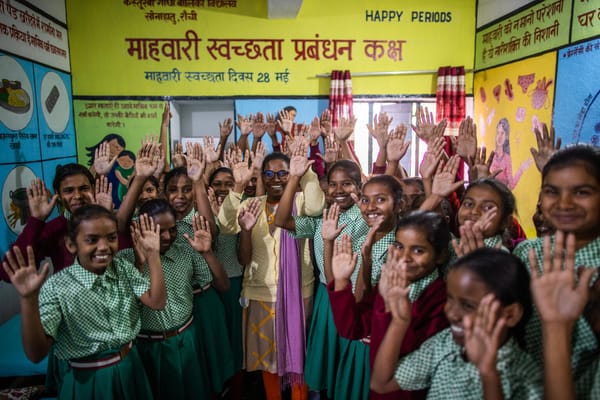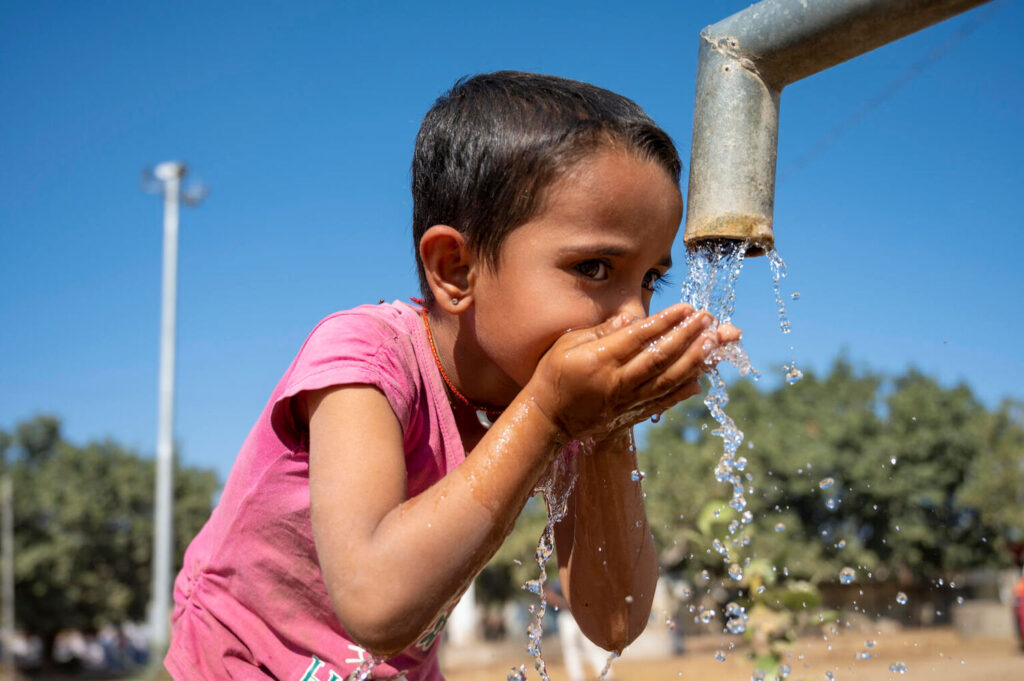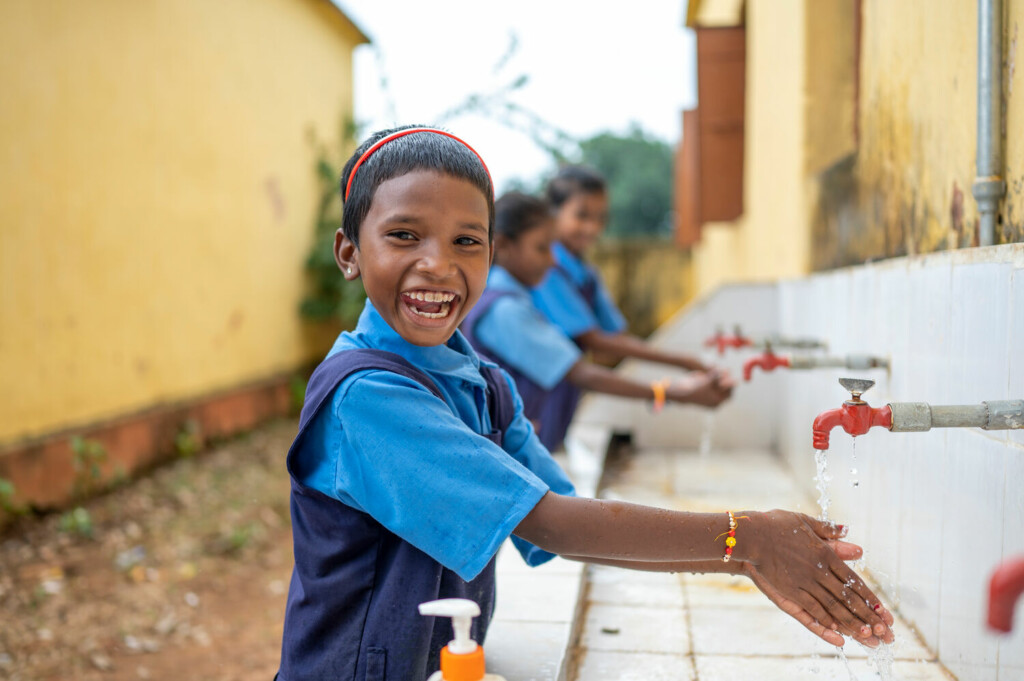
Lindström and UNICEF support clean water access in India
Access to clean water is a significant concern for millions of people in India. It’s an issue that hits children and women in rural areas hardest, affecting their physical health and emotional well-being.
Lindström and other donors are working to help change all this by supporting the efforts of UNICEF Finland to support the UNICEF in the Water, Sanitation and Hygiene (WASH) programme in India. The partnership for WASH in India aims to ensure that clean water is accessible to everyone, especially those who need it most.
Water supply challenges
In India, more than 600 million people are expected to face water shortages in the near future, and an alarming 42% of families currently lack access to safe drinking water. This scarcity poses a big challenge for the country.
Most noticeably, a shortage of clean water influences the availability of safe drinking water, resulting in far-reaching implications for public health and hygiene. Drinking unclean water leads to various waterborne diseases, from gastrointestinal issues to more severe illnesses. This puts the health and well-being of individuals, especially children, at risk.
Moreover, the lack of access to clean water makes it difficult to maintain proper hygiene practices, contributing to the spread of preventable diseases and illnesses. Without clean water, basic hygiene routines, such as washing hands or cleaning dishes, become challenging, impacting the overall cleanliness and well-being of individuals and communities.
Finally, a scarcity of clean water can significantly disrupt daily life. This is especially true for women and girls, who often spend much time and energy fetching water. As a result, they have less time for education and work, adding to the challenges they face in breaking free from poverty.
Quick and sustainable solutions are needed to ensure everyone has safe and easy access to clean water.

Support for rural water supply
UNICEF plays a meaningful role in ensuring that clean water services reach those who need it the most. The support they and other stakeholders have given to the Jal Jeevan Mission has provided access to safely managed water services to 20 million people in India.
However, UNICEF’s contribution goes beyond helping to provide access to clean water supply. They have also taken steps to empower communities. This includes teaching them effective water management, preparing them for the challenges posed by climate change, and ensuring that clean water is accessible to all. These efforts are vital in creating a more equitable and sustainable water supply system.
Tarmo Heikkilä, Leading Expert for UNICEF Finland says, “The partnership between UNICEF Finland and Lindström has been going on now for around 16 years. And during those years, we have seen many improvements in terms of people’s access to clean and safe water, access to toilets and safe sanitation and improved hygiene practices.”
As evidence of how this work transforms lives, take the inspiring case of a region in the north of India.
Addressing India’s water crisis: transforming lives in Sagwada, Rajasthan
In the heart of Rajasthan, a state characterised by its desert landscapes, a region named Sagwada faced a serious fluorosis problem. Fluorosis occurs when there is excessive fluoride in drinking water. Its symptoms can range from mild teeth discoloration to severe damage to the body and bones. Fluorosis has negative health consequences for all residents but impacts children most severely.
For Jiya and her 7-year-old daughter, Dipika, Sagwada was more than just home; it was the setting for their battle with the early signs of fluorosis. To bring about positive change in people’s lives like Jiya and Dipika, UNICEF and its partners initiated a project using the Integrated Fluorosis Mitigation (IFM) approach.
A core component of the IFM approach involves empowering the community. In Sagwada, a network of community childcare workers underwent specialised training provided by the Department of Women and Child Development. They emerged as the experts in dealing with fluorosis, supporting and educating individuals like Jiya and Dipika.
Another important part of IFM is providing nutritional support to fight against fluorosis. Essential nutritional supplements became a vital resource for families like Jiya’s. Calcium and Vitamin C-rich foods and supplements entered their diets.
Finally, ensuring a safe water supply is maybe the most important part of an IFM strategy. UNICEF joined forces with Rajasthan’s Public Health Engineering Department and the state government to implement a solution—an innovative Solar De-Fluoridation Unit near Jiya’s community. This device significantly reduces fluoride levels in the water, ensuring it complies with safety standards defined by the World Health Organization (WHO) and the Government of India. It was a turning point, not just for Jiya and Dipika but for the entire community of Sagwada.
UNICEF’s collaboration with state and local partners in Sagwada stands as proof of the power of collective action and commitment. Thanks to the efforts of the local community, UNICEF and its partners addressed the issue of fluorosis and ensured a safer environment for every child in Sagwada.
Charting the path forward: Lindström and UNICEF Finland’s mission for clean water
In India, the quest for clean water remains a significant issue and one of the three core tenets of the India WASH programme. Thanks to donors like Lindström, UNICEF has not only played a role in getting millions access to clean water but has empowered communities facing water-related health concerns.
“Lindström’s support has been allowing us to plan in a predictable manner on how best we will be able to deliver our mandates to support every child’s access to water in India,” Heikkilä shares.
There is still a lot of work to be done. And while the task might seem difficult, UNICEF and its India WASH partners are creating hope for a brighter and cleaner future in India.






